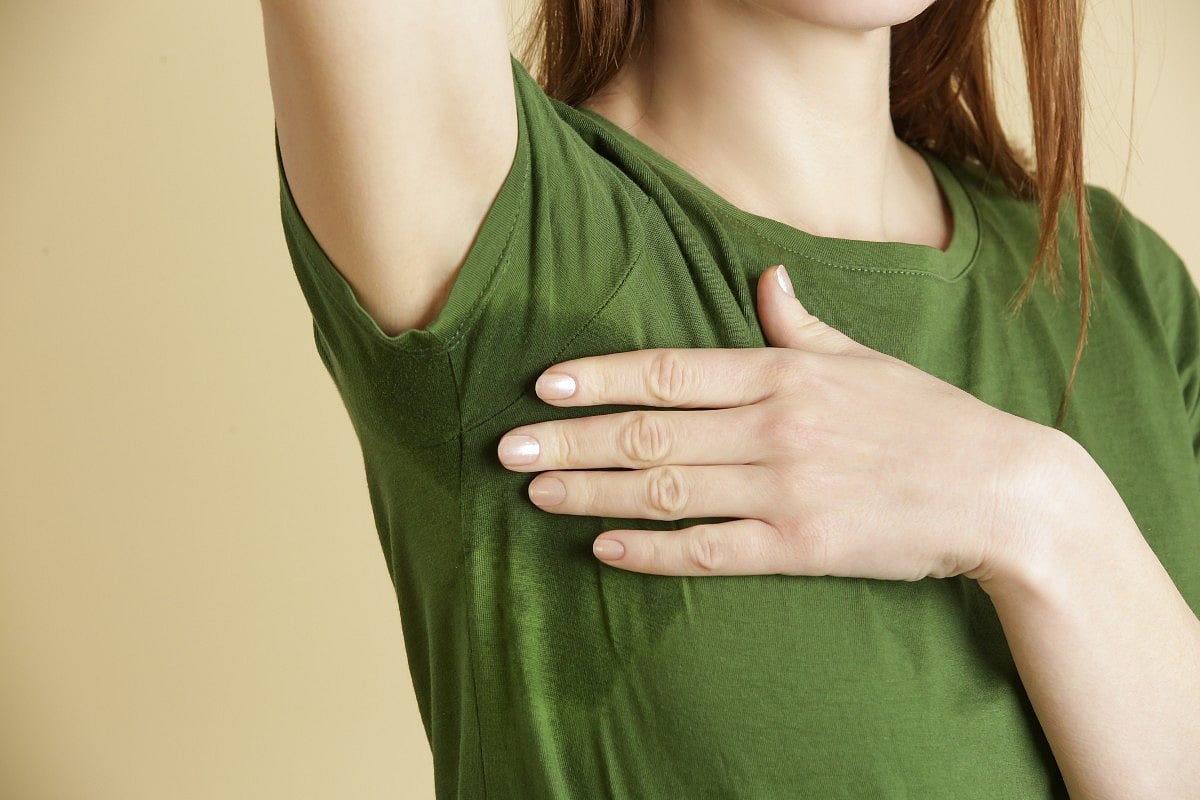Get Healthy!

- Ernie Mundell
- Posted July 20, 2024
Expert Offers Tips to Control Excessive Sweating
Sweating in the heat, while exercising or when under stress is natural and expected.
But if you find yourself excessively sweating in the absence of those conditions, you might have a condition known as hyperhidrosis, one expert says.
That form of excessive sweating "can have a significant impact on a person’s quality of life,†said Dr. Shoshana Marmon, a clinical assistant professor of dermatology at New York Medical College.
“Not only is there a physical toll, from sweating through clothing to visible beads of sweat on the body, but there is often an emotional component due to social discomfort or self-consciousness associated with the condition," she added in a news release from the American Academy of Dermatology.
Certain people may be at higher risk, including folks who already have a family member with the condition, any medical condition that has excessive sweating as a symptom, or people who eat foods or supplements that could bring on sweating.
Much as happens with normal sweating, heat, feeling stressed, and spicy foods or caffeine can trigger flare-ups of hyperhidrosis, Marmon said.
Some of the signs of hyperhidrosis include:
sweating that interferes with everyday activities, including the formation of obvious sweat stains in clothing or hands so sweaty common tasks become tough, such as turning a doorknob or using computer keyboards
sweat that's commonly visible on skin
skin that becomes soft, white and even peeling in certain areas
more frequent skin infections, such as jock itch or athlete's foot
“Although there is no cure for hyperhidrosis, treatments can significantly help to manage symptoms†said Dr. Marmon. “If your sweating persists without relief, partner with a board-certified dermatologist to develop a customized treatment plan that is right for you.â€
In the meantime, simple steps may help rein in excessive perspiration.
Using an antipersipirant instead of a deodorant can help, Marmon said. Antiperspirants work by plugging sweat glands, inhibiting sweating, whereas deodorants simply mask sweat's smell and body odor.
Applying antiperspirant to dry skin at bedtime and then again the morning is advised. Apply it to any body area that noticeably sweats, including your palms, back, and behind your knees, Marmon said.
Breathable fabrics like cotton are always preferred, she added, and some folks may want to consider using armpit shields to help prevent "pit stains" on clothes. Having a spare set of clothes on hand when needed is also a good idea.
For the feet specifically, be sure to change footwear often and let shoes dry out (don't wear the same pair of shoes two days in a row). Natural materials such as leather help air circulate better than synthetics or plastic footwear. Choose cotton socks that help draw moisture away from the skin.
All of the above steps can help lower the odds for athlete's foot and other infections, Marmon noted.
Try creating a "sweat diary" to help pinpoint those places and situations where sweating is most common, so you can avoid them in future.
Finally, take care of your mental health. Hyperhidrosis can make people very self-conscious and can even lead to depression. Marmon said that educating yourself about the condition and reaching out to support groups can help.
SOURCE: American Academy of Dermatology, news release, July 18, 2024







